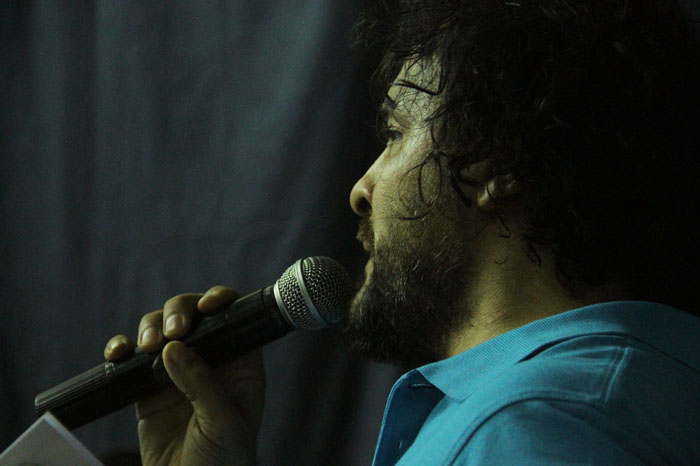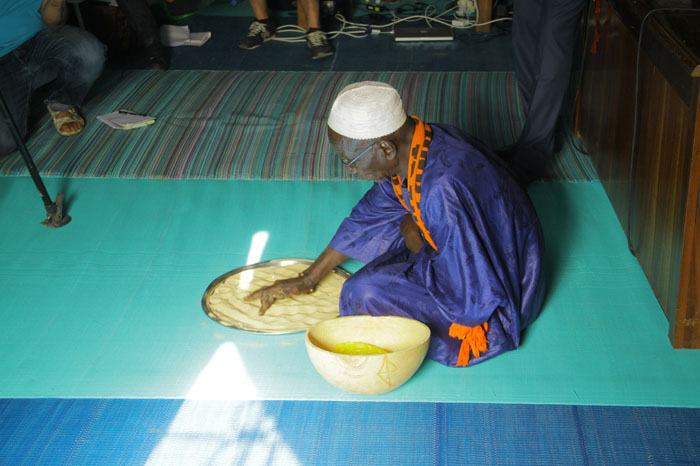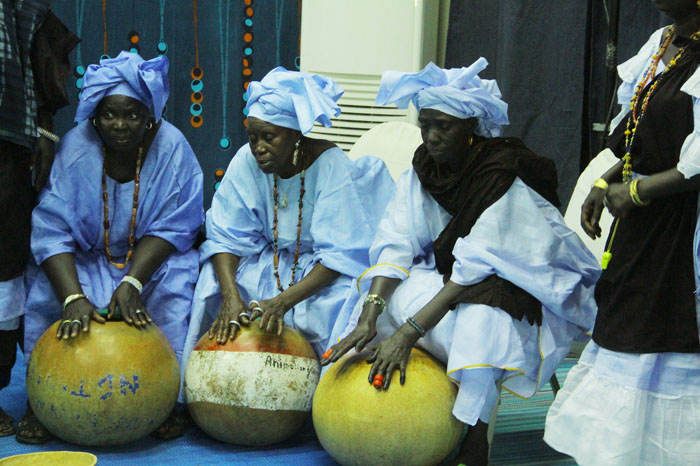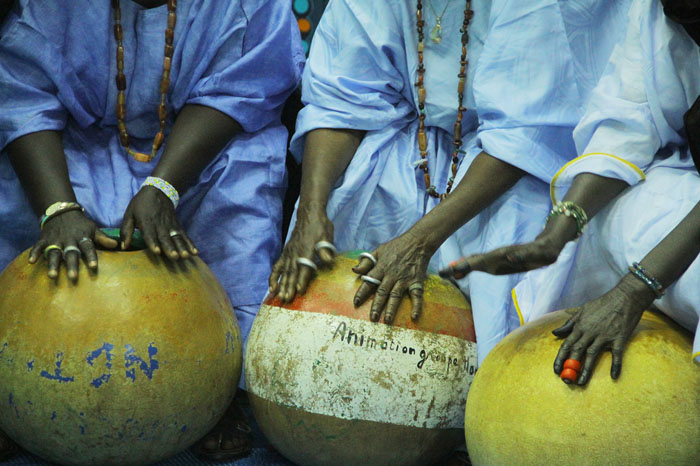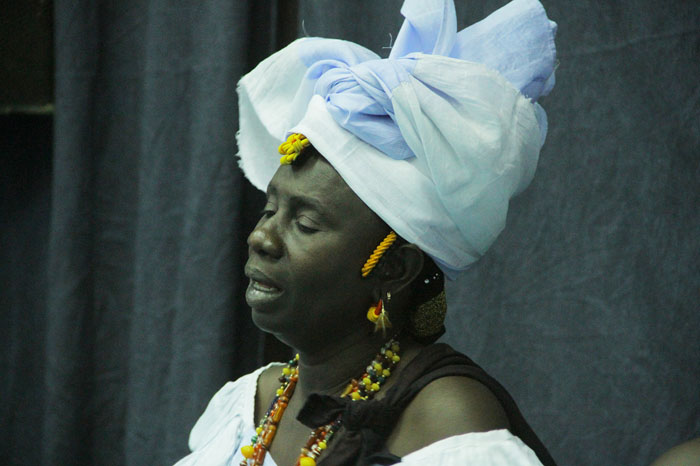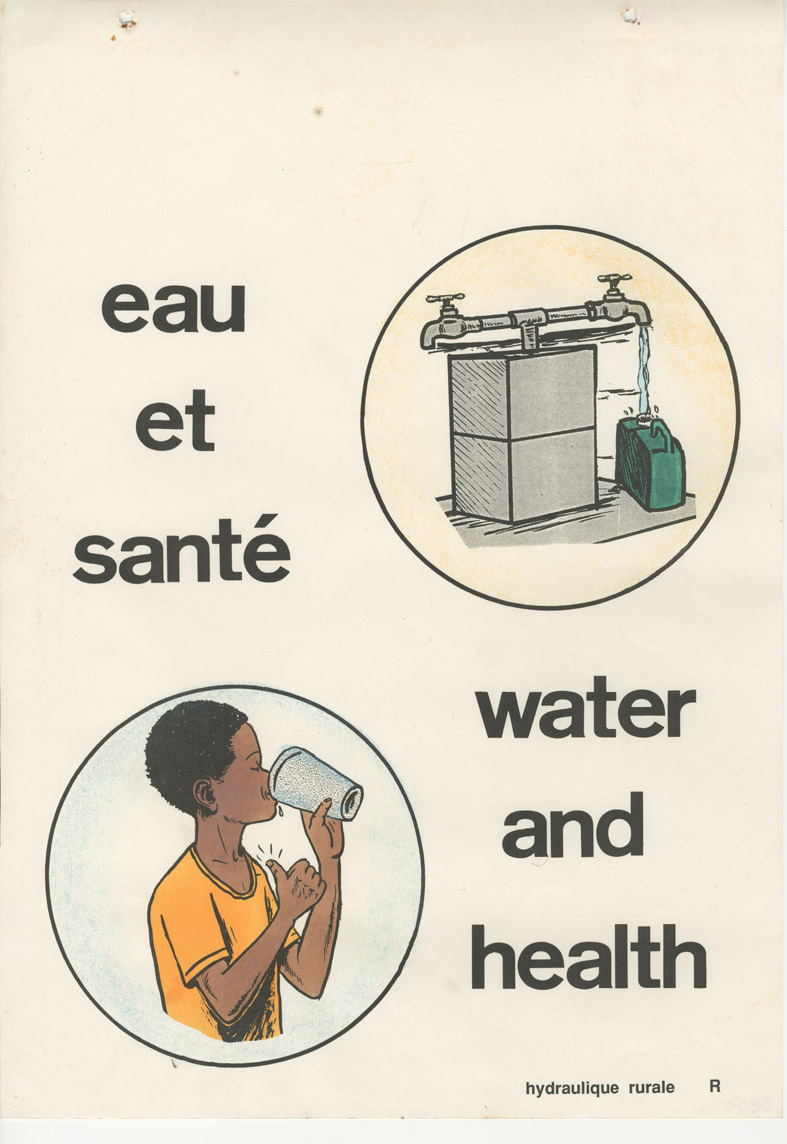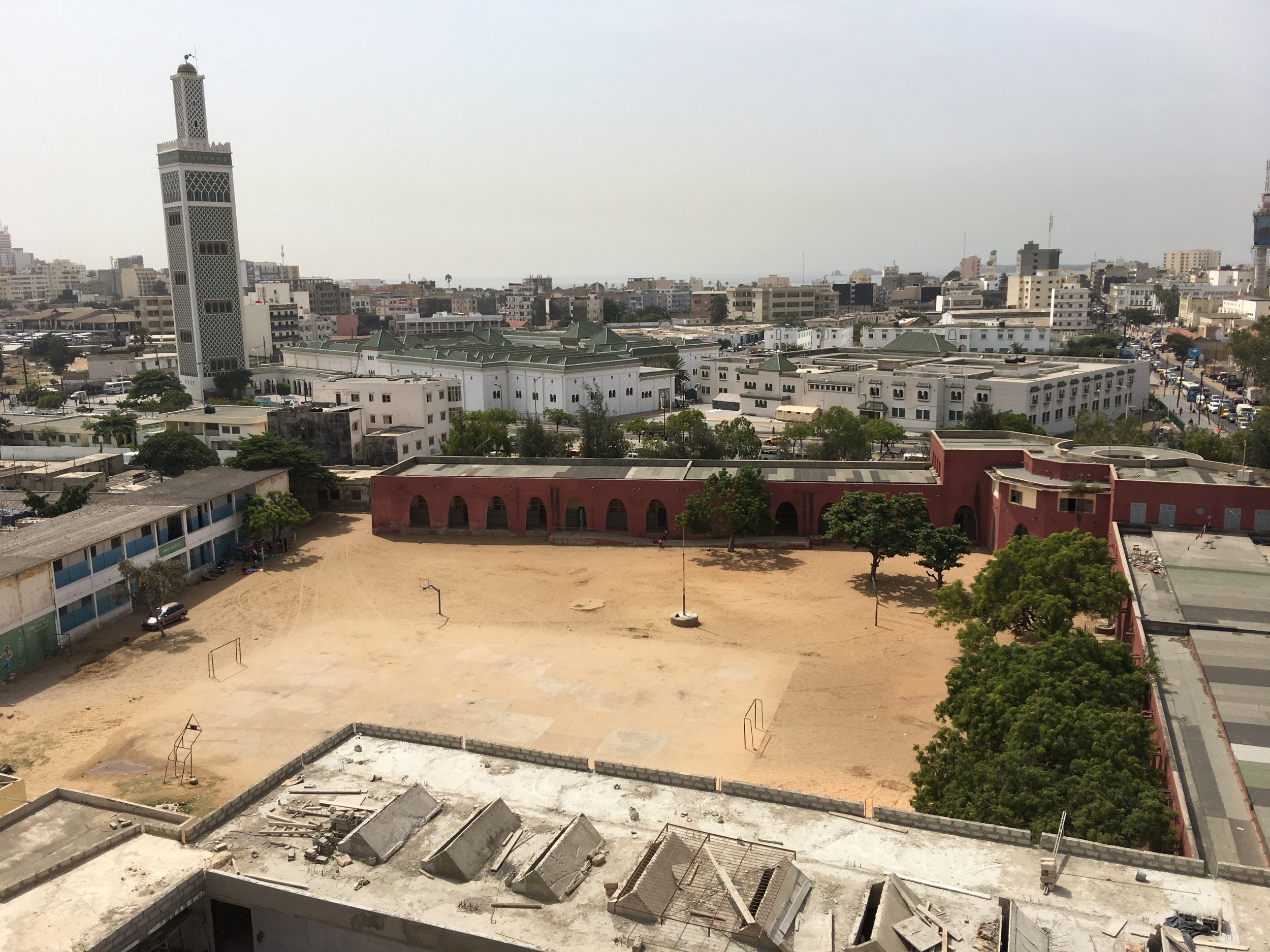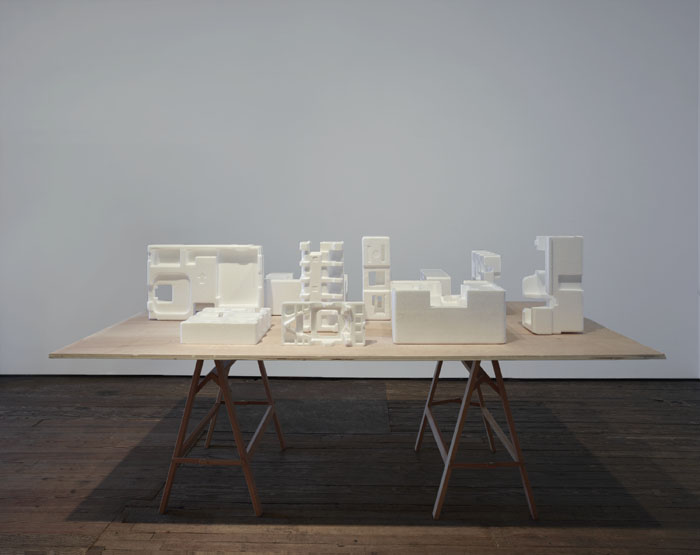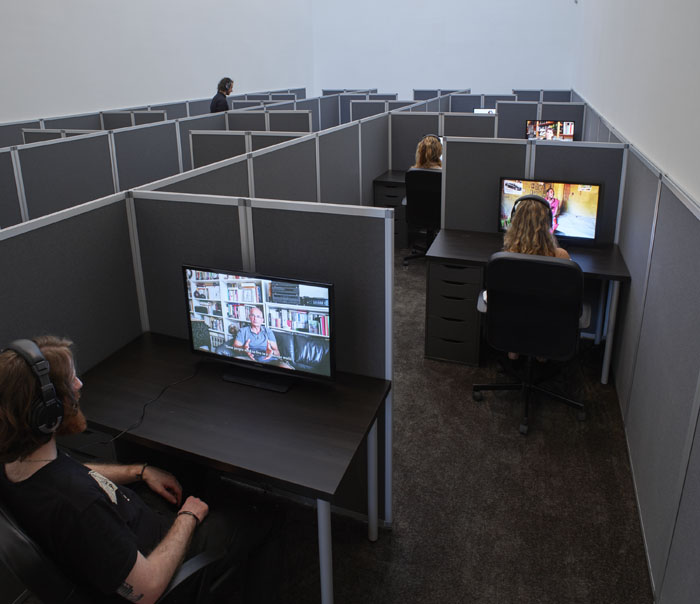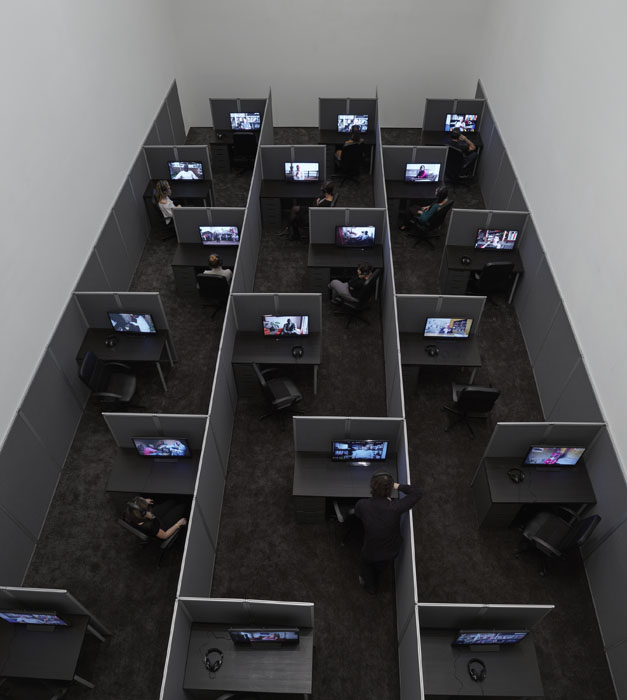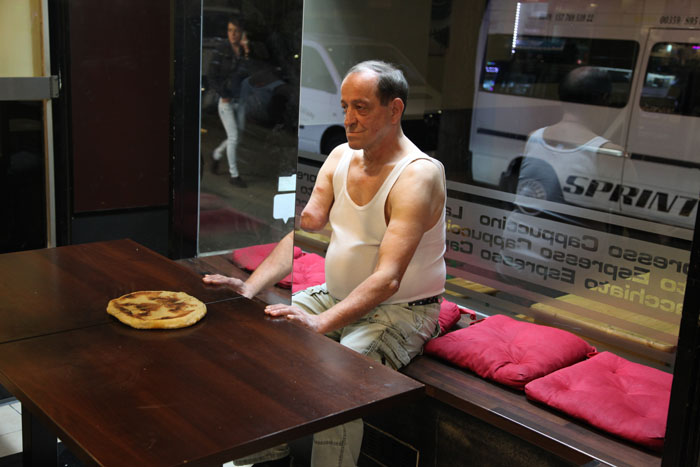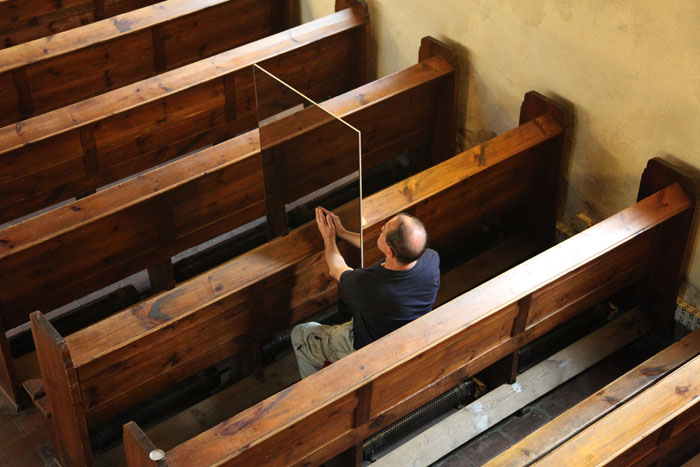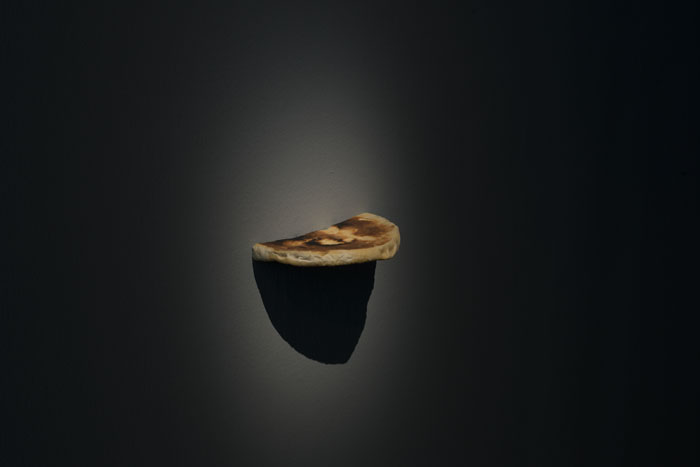The ambivalence of water as explored at the Sharjah Biennial 13: Tamawuj off-site project in Dakar
Tamawuj is the Arabic word for a rise and fall in waves; a flowing, swelling, surging or fluctuation; with its undulating appearance, outline or form. As the source of nourishment and purification, water quenches thirst and lulls us to a state of cleanliness. In Africa and among the rest of the world, water is an inescapable matter, often shifting in shape throughout our daily lives.
Nataal attended the Sharjah Biennial 13 (SB13) off-site project in Dakar where water was its theme. Dakar is a city by the water and its people bare the beauty of its shorelines. There is a calmness that can be felt within its aura. Sharjah, the neighbour of Dubai lies within the Persian Gulf and is also a traditional coastal city. Its long-standing link with water created a relevant theme for exchange. Christine Tohme, curator for the biennial now in its 13th edition is also director of Ashkal Alwan, a non-profit organisation focusing on the curation and production of artistic and intellectual action across media including film, literary publications and artist-in-residency programmes in Lebanon and abroad since the 1990s.
“Thinking of the unique relationship Dakar has with the Atlantic brought our attention to water, allowing us to draw parallels with Sharjah as a city with a history closely tied to seafaring and colonial control over bodies of water,” says Tohme. “Water is a useful metaphor when speaking about power and control. Whether the subject matter is contested geographies, abuse of natural resources, flow of cultural practices, migration, or liquidity and finanicialisation phenomena, this extra-terrestrial, life-giving shapeless substance carries a force that continues to shape our world today, like it did from geological times immemorial.”
The artist Kader Attia is of French and Algerian descent and has long been working, travelling and exhibiting across the continent in Egypt, Republic of Congo and Senegal. The 2016 Marcel Duchamp prize winning artist, currently exhibiting at Lehmann Maupin NYC, has developed a long standing working relationship with Dakar, which made him an ideal choice for interlocutor of the biennial’s artistic conference in Dakar, entitled Vive l’Indépendance de l’Eau (Long Live the Independence of Water). Taking place at the renowned Cheikh Anta Diop University on 8-9 January, water went under interrogation by interventions from artists, architects, ecologists and theorists from West Africa, North Africa, the Middle East and beyond. By route of film, performance, poetic orality, songs and reenactment of rituals, water became a discursive uncontainable notion. The project is a prologue to SB13, which runs from 10 March to 12 June 2017.
For Tohme, “The ensuing waves of migration across the Mediterranean, will forever mark our imagination with the thousands of deaths caused by negligence every year.’’ The conference shone a light over these realities and “the daily experience of millions of Palestinians in the West Bank, which is marked by a denied access to the sea… Water is life but water could also be death.”
Senegalese photographer and musicologist Kemi Bassene believes that “we need more connections like this one” where discussions are held from a non-western perspective. He is critical that “water has become a fashionable issue in many disciplines” and raises the importance of questioning why. Bassene argues that “natural resources are not used or protected in accordance with a true African political vision”.
Attia feels that humans are akin to water, we are wandering forms and “you cannot control water”. There is a sense that he is not speaking about the physical form of water, but is referring to the changing forces that exist within our respective lives. For Attia “a tsunami can happen at any time”. Water, often wavering, can strike by the heaviness of summer rains in monsoon seasons while also causing strife by being absent in times of drought, as a fluid force it flows with great ambivalence.
Senegalese Professor Ibrahima Wane focuses on music and literature as areas for communication of water beliefs. He explains that “water is a bustling theatre of history and the bed of a fertile imagination” within African communities. Water divinities and spirits including Mami Water are arguably the most adaptable, flexible, and innovative of all African divinities because fluidity is at the essence of their being. There are various and differing conceptions of Mami Water within Indian, European, African Christian and traditional religions and cultures. In popular mythologies, the water divinity is believed to appear as a beneficent provider of wealth in its many forms and is known to summon knowledge, spiritual wisdom, creative inspiration, children, beauty in women, gold and success in business. Others believe them to be spirits of capriciousness who can cause disaster by drowning people who are attracted to water, capsizing boats and rendering couples childless, then driving them mad. Water divinities demonstrate by their very nature the omnipresence of the divine, the human and the natural worlds.
As a fundamental fixture for life, water can be virtuous but its perils should not to be overlooked. The thematic focus of SB13 will relate to the key words water, crops, earth and culinary as the the off-site projects now continue to Palestine, Turkey and Lebanon. These dialogues and debates are also ongoing on the SB13 publishing platform Tamawuj.org.
Visit Sharjah Biennial 13


